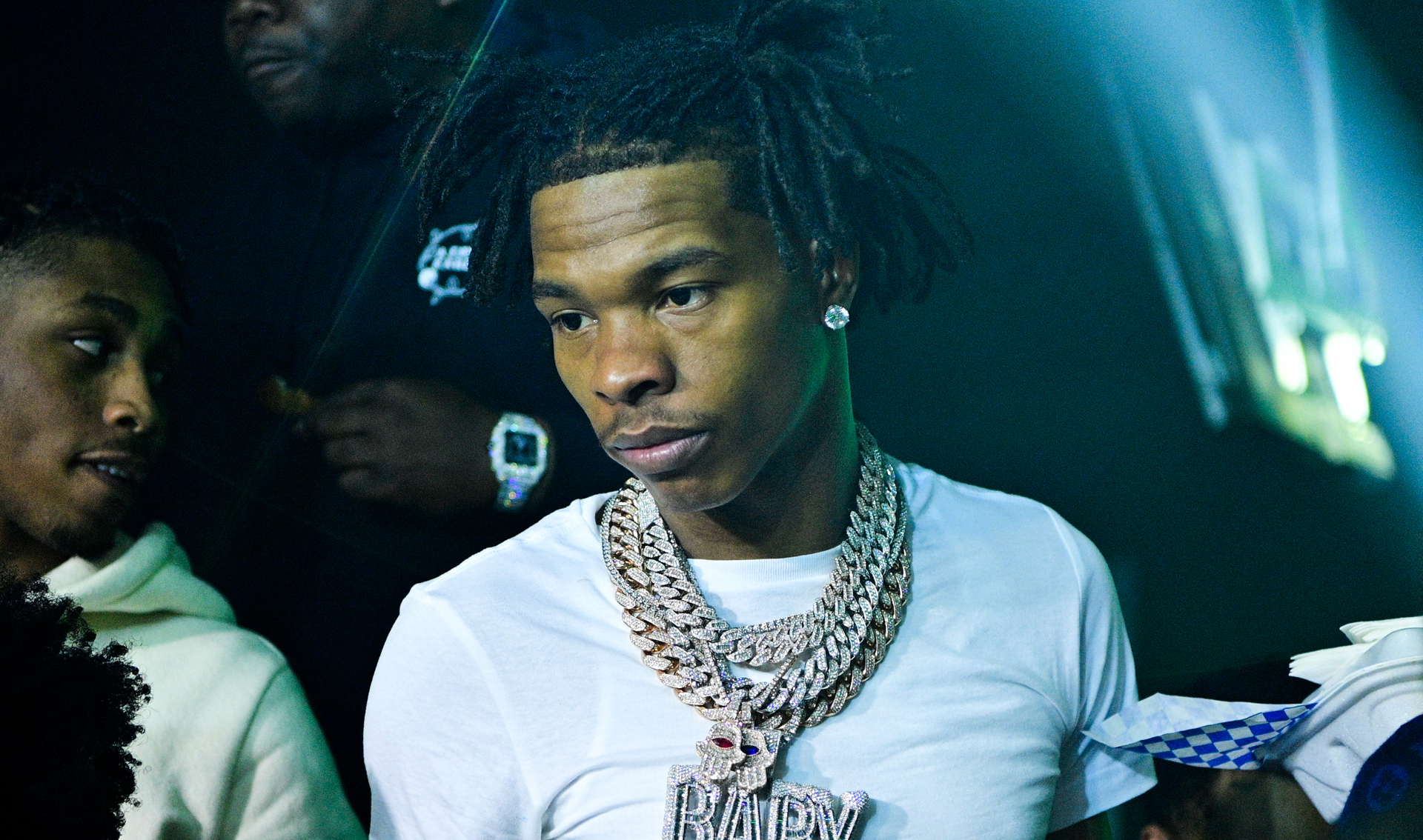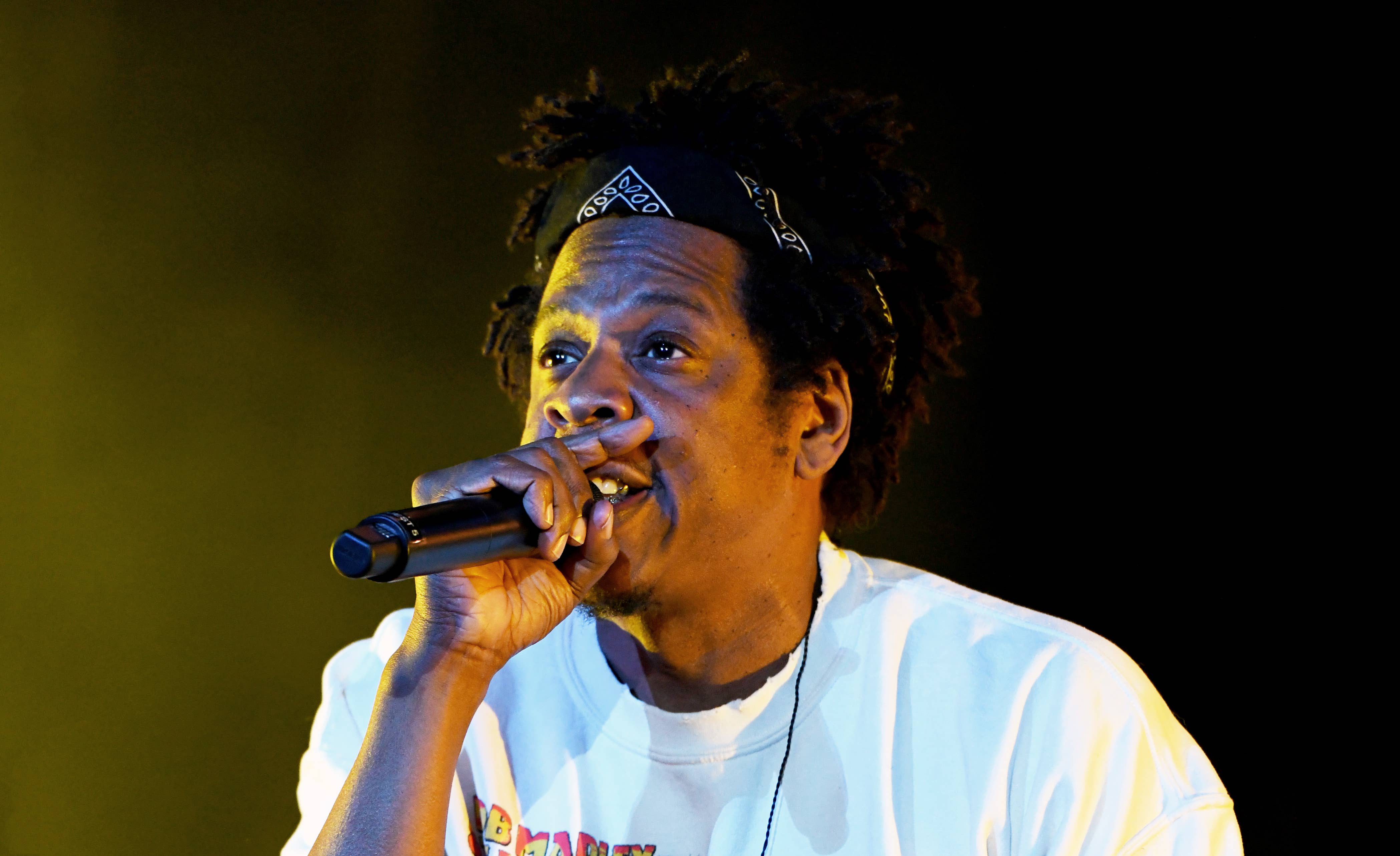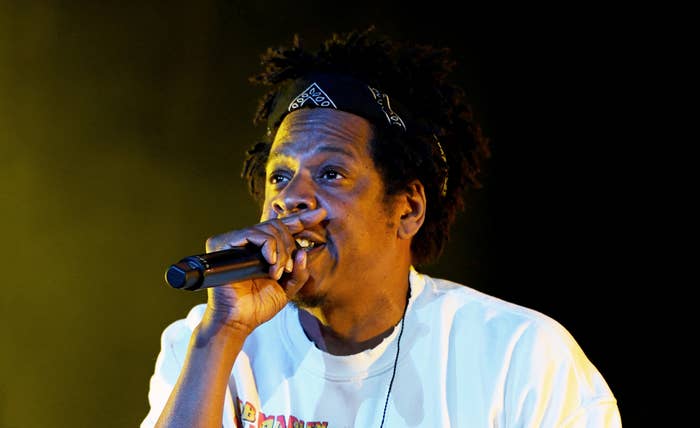
At this point, it feels like a rite of passage for the hottest MC in the game to liken themselves to Jay-Z. Most recently, Lil Baby took a stab at it by proclaiming, “No Cap, you know I’m baby Jay-Z,” on his Instagram Story.
Jay-Z has been around so long that it feels like he’s lived this Jordan/Kobe dynamic several times over with the likes of Kanye West, Lil Wayne, T.I., and Drake. Those relationships were built off reverence, but some succumbed to “idols become rivals” energy. It doesn’t seem likely to happen with Lil Baby, though. His aspiration to be “baby Jay-Z” isn’t predicated on one-upping him, just “following in his footsteps,” as he told Billboard in March.
“Jay-Z is a guy who I look up to, and look up to the way he moves and the things that he’s done,” he said. “Influence” and “impact” are abstract notions that no two people can have the same rubric for. But tangibly speaking, few rappers (if any) have done as much as Jay-Z in the music industry. He’s sold millions of records, rocked stages all over the world, and earned the distinction of one of the game’s most commercially successful artists throughout the past four decades. His catalog checks off all the boxes as a supremely talented lyricist in rotation with the streets, the backpackers, partygoers, and seemingly everyone else in between. Brand deals and partnerships with Ace of Spades, Tidal, and other companies have garnered him a one-billion-dollar net worth. And of course, he’s married to Beyoncé.
His sonic progeny call themselves the next Jay-Z, but he calls himself “Hov”—as in Jehovah. The man has been so commercially successful that people casually call him God.
There are other iconic MCs that rappers compare themselves to, but few are honored at the same rate, or from the same pedestals. For years, it’s seemed like the hottest artist at any given time wants to emulate Jay-Z. The closest competitor for that mantle is Tupac, but it doesn’t always feel like artists evoke his name for the same reasons. There are some who aspire to be the man-of-the-people, pro-Black voice he was, while others just think their paranoia after being shot or incarcerated puts them on par with Pac.
Other oft-tributed artists are Nas for his lyricism and style; Gucci Mane for his prodigious output and perceived street credibility; Wayne for his longevity and creativity; Kanye West for his outspokenness, boundary-pushing, and fashion consciousness.
The most beloved MCs check off multiple boxes. Jay-Z not only checked off most of them, but took advantage of rap’s cultural boom to create a couple of new categories. He’s not just a rapper; he’s an entrepreneur and former label president, who has had his own alcohol brand, DSP, and sports agency.
Rap is such a young genre that Jay-Z is one of the only people who could have possibly pulled off his career path during the time period that he has, indeed making his run as “unprecedented” as he referenced on “Sorry Not Sorry.” There were moments in the 2000s when The Game, Lil Wayne, various members of Dipset, and others took shots at him and thought they were primed to take his glory as he neared his 40s. Over a decade later, many fans still see him as a better rapper and more culturally relevant than all of them. It’s been that long.
Going forward, rappers no longer have to reference being “bigger than the Beatles” or making “Trump money” (please don’t). To some fans, Jay has even supplanted Rakim as “the God MC.”
For better or worse, his billionaire status makes him an in-community example of the best possible scenario for artists seeking a mix of lyrical supremacy, cultural relevance, and riches.
That powerful combination is what’s at the heart of Drake saying he “turned into Jay-Z” after selling boatloads of records and appeasing wide swathes of fans. It’s why Pharrell called T.I. the “Jay-Z of the South” when Tip was feeding the streets (and the radio) with trap narratives and catchy singles like “Rubber Band Man,” “Let’s Get Away,” and the Hov-sampling “Bring Em Out.” Wayne is one of rap’s most avid Jay-Z fans, imitating Jay’s Volume series on his first two Carter covers. He may be the game’s best parallel to Jay, getting the blessing as “my heir” on “Mr. Carter,” and putting together a Young Money juggernaut that may have been the most commercially successful imprint since the Roc.
For each of these artists, there came a moment when it was no longer enough to say they were the best in their city or amongst their peers. Instead, they vied for the ultimate crown, which so many feel belongs to Jay-Z. It’s interesting how so few of these comparisons are solely based on music, reflecting how the game has changed since Jay-Z’s late ’80s entry into music as a protege of Big Daddy Kane.
Kane and Rakim fought for the crown on the basis of skills. But the rivalry between Jay-Z and Nas, students from each man’s respective tree, is in part defined by their fans’ focus on entrepreneurship. Jay-Z set the mandate that he’s “out for presidents to represent me,” earned them in abundance, and became the blueprint for solo rap success. Suddenly, great music wasn’t enough; artists became expected to commodify themselves in some fashion to transcend to the “next level” in the industry. Kendrick Lamar’s “Control” verse was so revered because he was laying his game flat: he wasn’t out for riches, he wanted to be the best rapper, period. He’s expressed admiration for Jay-Z, but he’s an outlier as one of the few superstars seemingly uninterested in the “mogul” stage.
Hip-hop’s assimilation into corporate America has rained down the kind of riches that weren’t available in the ’80s and ’90s, when being the best MC was the ultimate goal. Those who aspired to be the biggest rapper only had to focus on the bars. But once rap crossed over and consumerism sunk its teeth into the genre, brand deals, net worth, and hits became a part of the “best rapper” equation. For better or worse, the framework for mainstream rap success is defined by capitalistic ethos.
It’s come to the point where some fans feel like Jay-Z is far beyond the competition, not just because of his hefty catalog, but because of his net worth and business dealings. When discussing who he wanted to do a Verzuz with, T.I. said he thought Jay-Z would be unwilling, not because of catalog, but riches. “Who can see [Jay-Z] sitting down doing a battle? If I’m a billionaire, I’m not finna do that either,” he said. “Me and 50 ain’t that far off… as far as our confidence, as far as our bankrolls go.” His comment typified the stratosphere of rap where money has as much to do with stature and worthiness for comparison as catalog.
Perhaps the game collectively reaching this point was inevitable, as hip-hop is a from-the-streets artform which became the chief source of the hustler’s narrative, surpassing movies and books. Raised in a capitalist country, many artists know no better than to parlay the success from nothing-to-something lyrical narratives into ascendance up the corporate ladder. Jay-Z has done that better than perhaps anyone ever will, which is why he’s so often the bar for aspiring MCs.
Here’s a brief history of the most notable examples of stars evoking Jay-Z’s name:
Lil Wayne
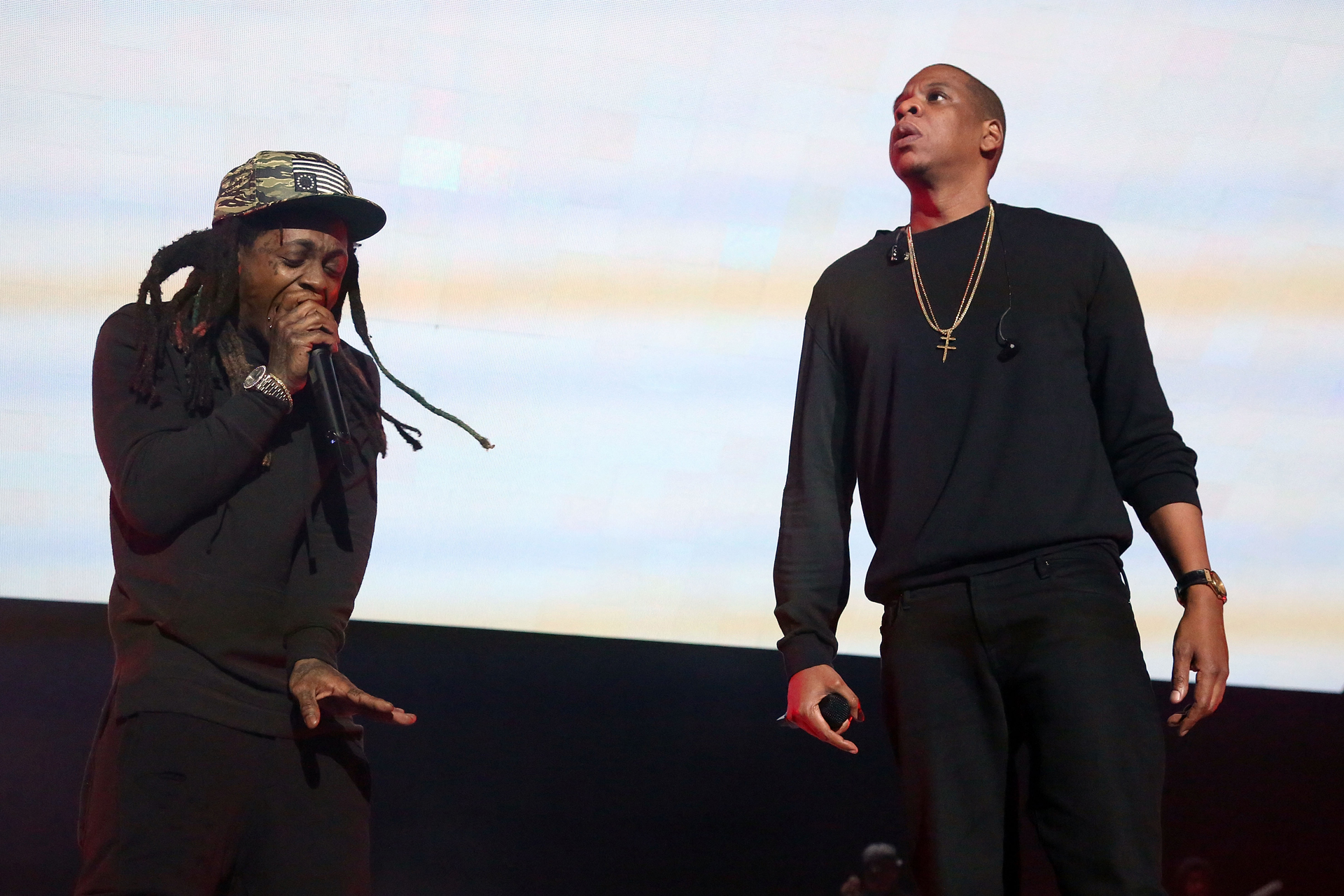
Kanye West
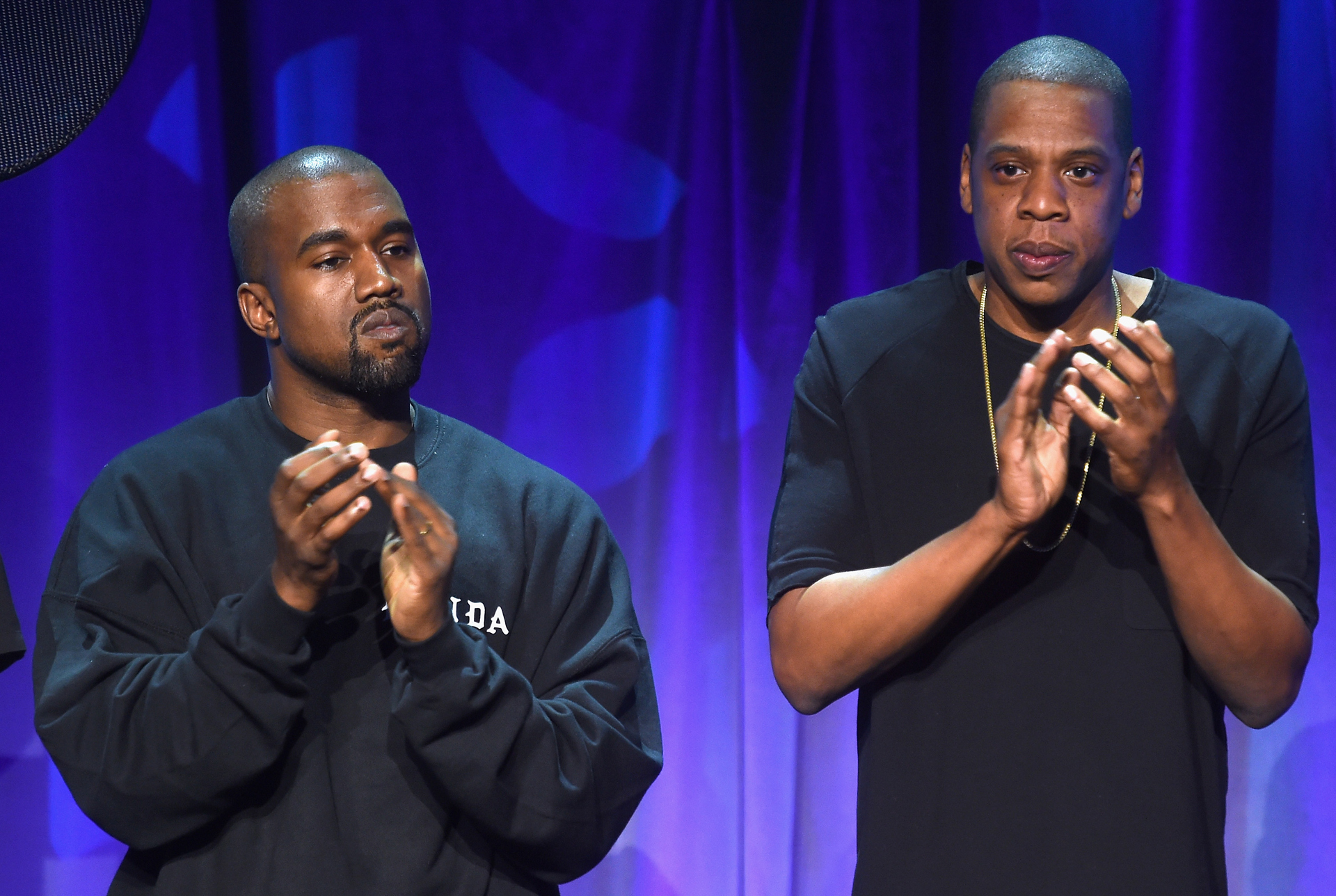
Drake
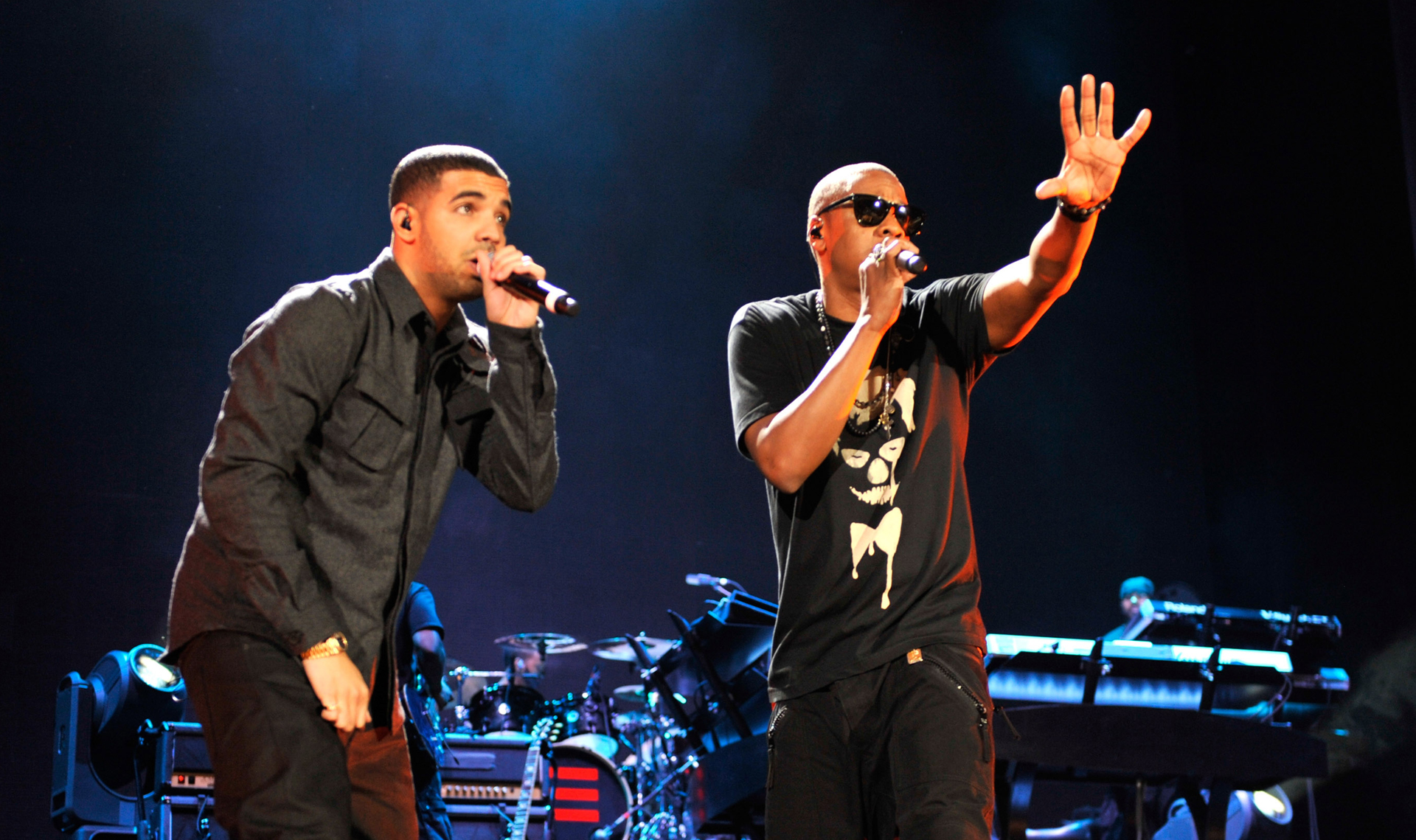
Lil Baby
